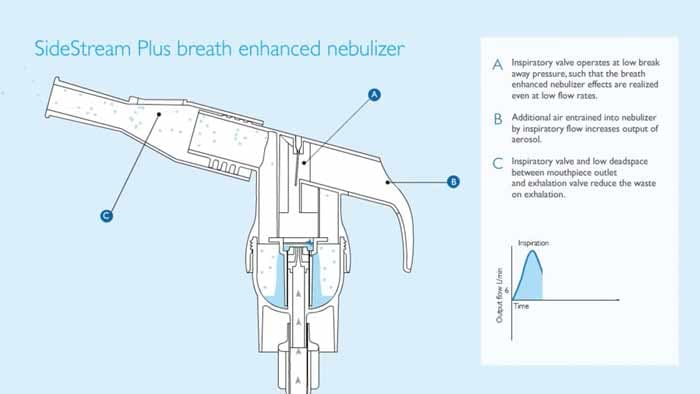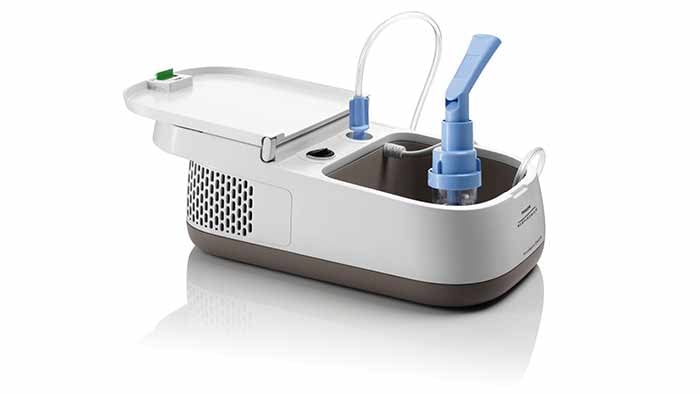Nebulizers and compressors
A nebulizer changes medication from a liquid to a mist so that it can be more easily inhaled into the lungs1.
What is nebulizer therapy?
If you or your child has been prescribed liquid medications for inhalation, nebulizers are used to change the liquid into a fine mist which allows it to reach deep into the lungs where it can be most effective.

What is a nebulizer?
There are three types of nebulizer: jet, ultrasonic and mesh.
What is a jet nebulizer?
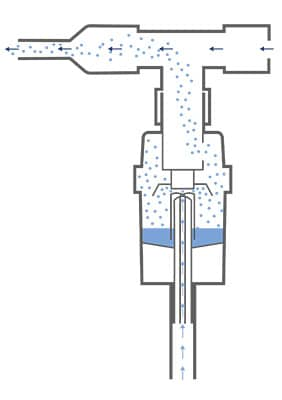
The nebulizer is the part of the system that changes the medication into a fine mist. The compressor provides a flow of air to the nebulizer, enabling it to create the mist. The SideStream nebulizers are highly efficient and can be used to nebulize most commonly prescribed respiratory medications.
What is an ultrasonic nebulizer?
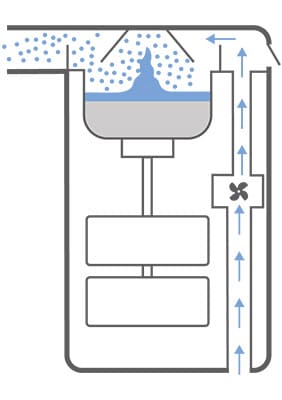
Ultrasonic waves pass through a reservoir of water driving energy through the drug to create the aerosol. They are not suitable for all commonly prescribed medications.
What is a mesh nebulizer?
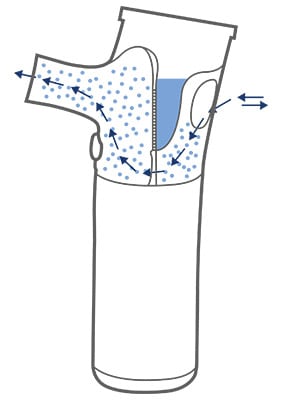
The vibrating mesh pulls the drug through the microscopic holes in the mesh, which creates the aerosol.
SideStream technology
SideStream nebulizers are proven to consistently deliver a high-quality aerosol.4 Our SideStream Plus diamond jet technology is combined with a low-resistance valve to boost aerosol delivery, so your medication is delivered with easier inhalation using less pressure. Disposable
Replace after 2 weeks of use.
Reusable
Replace after 6 months of use.
The importance of particle size

Grain of sand (90 microns)

Human hair (50 microns)

Aerosol particle (5 microns)
The fine mist created by a nebulizer is made up of thousands of particles. The particles that make up the mist are so small that they are measured in microns (µm) which is equal to a thousandth of a millimeter. To travel deep into the lungs, the particles that are inhaled need to be within the size range of 1 and 5 µm5. This is extremely small when you consider that the average "human hair" is around 50 µm. If the particles are not less than 5 µm it is unlikely that they will reach the lungs where they can be most effective.
What is a compressor?
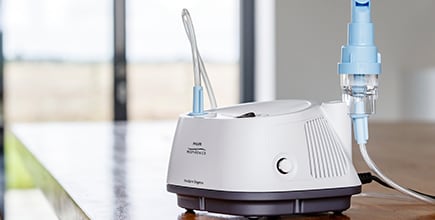
The compressor is a pump that draws in air and blows it out at high pressure into the jet or ultrasonic nebulizer to produce a fine mist of medication that can be inhaled. A compressor is electrically powered by the power outlet in your home or, if it is a portable compressor, it may also have a separate battery or charger.
How to use care and clean the Philips SideStream nebulizers and InnoSpire Compressors
InnoSpire Go
Portable mesh nebuliser

Delivers medication in as little as 4 minutes3.

Sleek, streamlined design and easy operation

Virtually silent delivery of medication, at home or on the go

Simple two-part construction for easy cleaning

Built-in rechargeable battery delivers up to 30 treatments (120 minutes of use) per charge
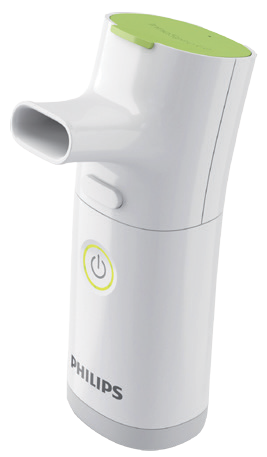
Fast, effective and easy to use, the Philips InnoSpire Go portable mesh nebuliser is designed to shorten asthma treatment time by 25%2, so your medication can be delivered in as little as four minutes3. Virtually silent, InnoSpire Go is small, portable, discreet and can be used anywhere.
See InnoSpire Go and learn how it works

InnoSpire Go portable mesh nebuliser features Aerogen Vibronic® mesh, the same vibrating mesh technology used in hospitals worldwide for use at home. When turned on, the device vibrates the mesh, drawing the liquid medicine through approximately 1,000 precision-formed microscopic holes and creating a fine aerosol mist. Medication reaches deep into your lungs, where it's most needed and most effective. Mesh nebulisers are highly efficient and can be used to nebulize most commonly prescribed respiratory medications.
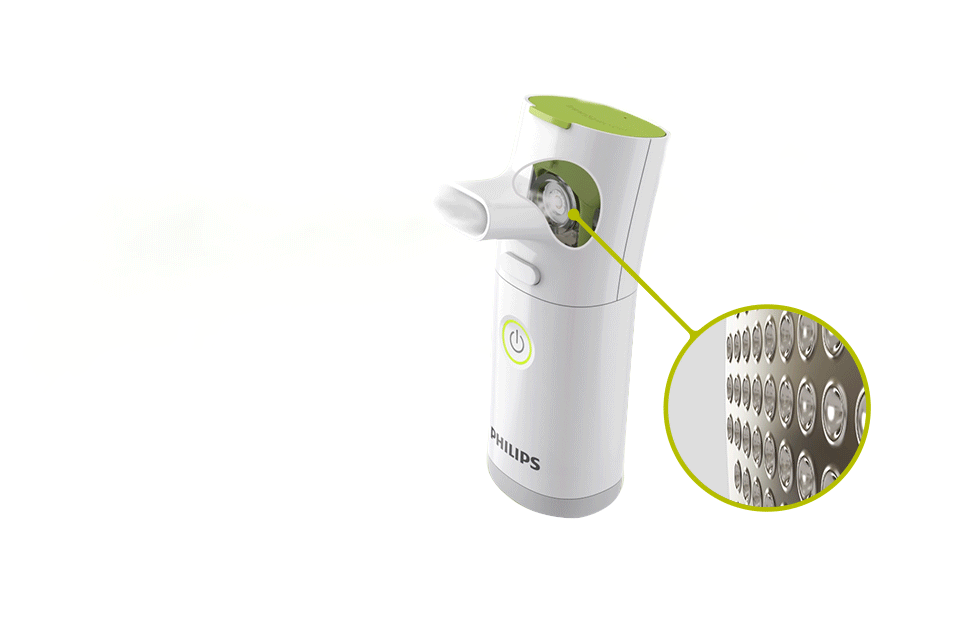
Frequently asked questions
DISCLAIMER:
Information on this website is information only and should not replace the advice of a physician.
FOOTNOTES: [2] Versus predecessor Aeroneb Go. [3] Using 2.5ml Salbutamol [4] Shah P.L, Scott S.F., Geddes D.M., Conway S., Watson A., Nazir T., Carr S.B., Wallis C., Marriott C., Hodson. M.E. An evaluation of two aerosol delivery systems for rhDNase. European Respiratory Journal, 1997 10; 1261-1266. [5] ncbi.nlm.nih.gov. PMC/articles/PMC1765861/pdf/v052p000S4.pdf
[1] webmd.com. Asthma/guide/home-nebulizer-therapy#1. Accessed October 2017.
